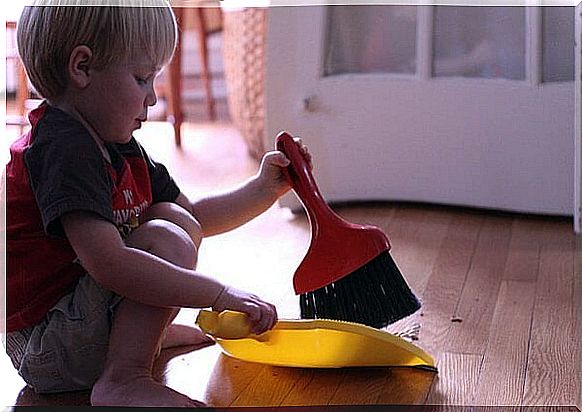Teach Your Children To Help With Household Chores

Surely you have heard that it is good for your children to help at home. It’s true! We will tell you why and explain how you can introduce them to household chores.
Helping at home is the beginning of a basic learning process for your children: the ability to be independent. Something as routine and basic as being in charge of certain tasks can make your children grow up confident, independent and capable of achieving their goals.
Experts believe that it is very beneficial for children to help at home with tasks that are adapted to their ages and abilities.
Benefits of helping with household chores
There are many benefits to having your children help with small tasks at home.
- Promotes self-esteem. Knowing that they can do housework will give them a sense of satisfaction and increase their self-esteem.
- Encourages independence. Being self-directed must be one of the goals of teaching children. Raising children who are able to face life’s difficulties without relying on others is a priority.

- Learn responsibility. Taking responsibility is the ability to handle what we are exposed to without delegating, fleeing or abandoning it.
- Promotes teamwork. The children will learn to work in teams, to cooperate. Knowing how to handle tasks as a team is beneficial to them. Together you can do more and better things.
- Promotes order and hygiene. Knowing that it is necessary to have an orderly and clean home is important. Order in the home can help you organize ideas. It is about establishing basic rules for coexistence before being able to have your own home in the future.
- Promotes the ability to help others. Cooperation makes the children understand that these tasks are everyone’s responsibility, not just the mother’s or the father’s. Your children will feel great satisfaction in having helped the rest of the family.
How to teach household cooperation
There are a number of tips to follow to teach collaboration through household chores.
- Do not be bossy. The goal is to get your children to internalize the discipline and responsibility of doing housework. If you order him or her, it becomes an obligation and therefore something he or she does not want to do. Suggest task sharing and collaboration.
- Make task tables. Everyone will perform assigned tasks according to their ages and abilities.
- Help when needed. Avoid doing the chores for them. Teach them to do them, do them together or just be with them while they do them on their own.
- Do not shout or criticize. Do not seek perfection, but rather create the habit. A little as they will improve, but you have to be patient. Try not to shout at them or impose on them your way of doing things. They will achieve their own perfection.
- Reward the effort. You must appreciate the work that has been done. Do not forget that a “good job” is more reinforcing than saying that something has been done badly.
Age-appropriate chores
You can not assign any task. You need to choose specific tasks as your children grow up.
Remember that the more they see it as a game, the more they will cooperate. Establish a system of prices that can be obtained when the tasks are completed; it will be an infallible method.
Young children (2-3 years)
- Put the dirty diaper in the garbage bag
- Clean away your own toys
- Take dirty clothes to the washing machine
- Feed the pet
- Go to the toilet yourself
- Try to dress yourself
Children 4-6 years
- Clean his room
- Try to make his bed
- Fold their clothes

Children 7-10 years old
- Water potted plants
- Wash
- Make your own bed
- Help clean up: sweep, dust and more.
10-12 years old
- Fill up the washing machine
- Help with cooking
- Take out the garbage
The sooner you teach your children to help with household chores, the sooner they will learn that things will not happen by themselves and that their help is therefore necessary.









